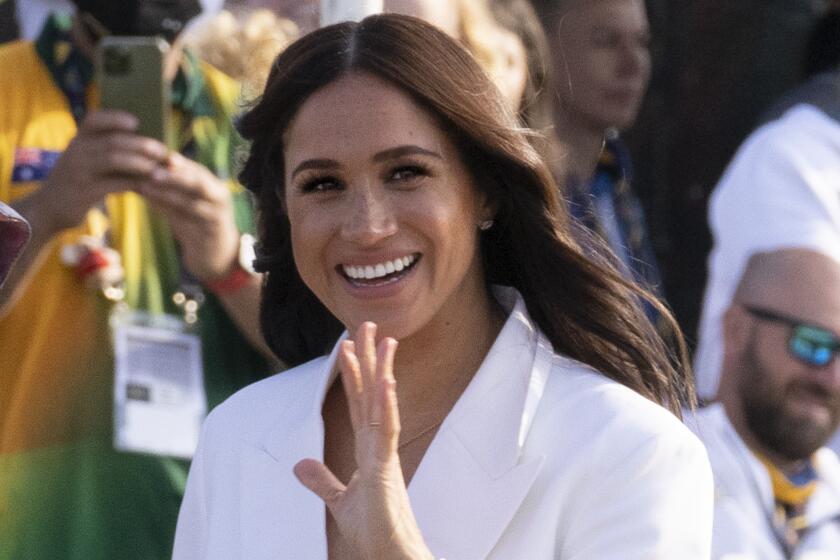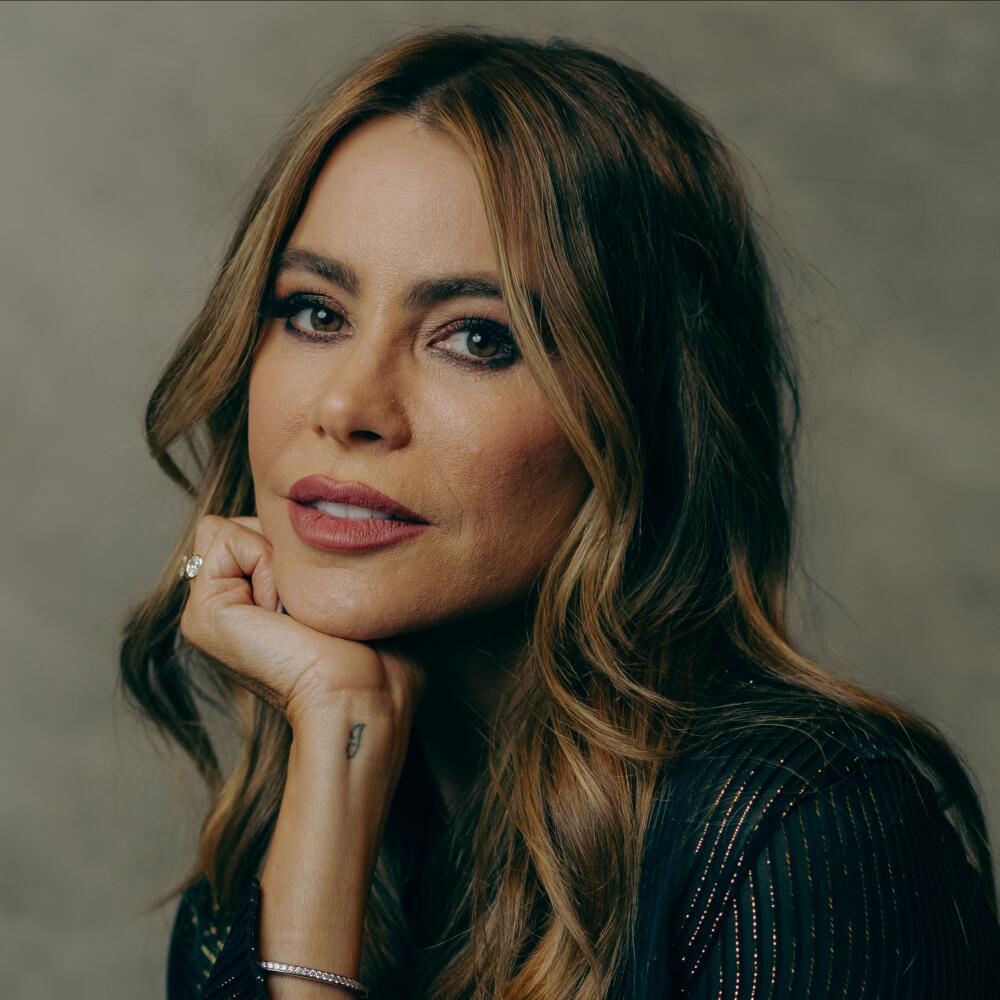
- Share via
The idea began tugging at Sofía Vergara about 15 years ago.
On the cusp of taking on a role that would eventually put her in the vanguard of the highest paid TV actors — as Gloria Pritchett, a hilarious spin on the trophy-wife trope, in ABC’s long-running sitcom “Modern Family” — Vergara wasn’t yet a star fielding desirable offers.
Griselda Blanco, a Colombian drug lord who may not have been as well known as some of her more famous male counterparts like Pablo Escobar or the Ochoa brothers, despite being just as ruthless and ambitious, first caught Vergara’s attention in passing when she watched the 2006 documentary “Cocaine Cowboys.” Some time later, Vergara read an article detailing Blanco’s rise and blood-soaked reign, and the female crime boss suddenly became a figure the actor was determined to play.
“I’m always looking for characters because there’s not much that I can play with this stupid accent,” she says, playfully poking fun at herself. “I can’t play a scientist or be in ‘Schindler’s List.’ My acting jobs are kind of limited.”
At the time, she was in a holding deal with ABC, and two of the shows she was cast in were canceled after one season. With her creative career still in bloom, Vergara took a measured approach with her pet project, keeping it on the back burner as she signed onto “Modern Family” in 2009, a career-defining gig that would stretch 11 seasons, earn her four Emmy nominations and set her star power into orbit.
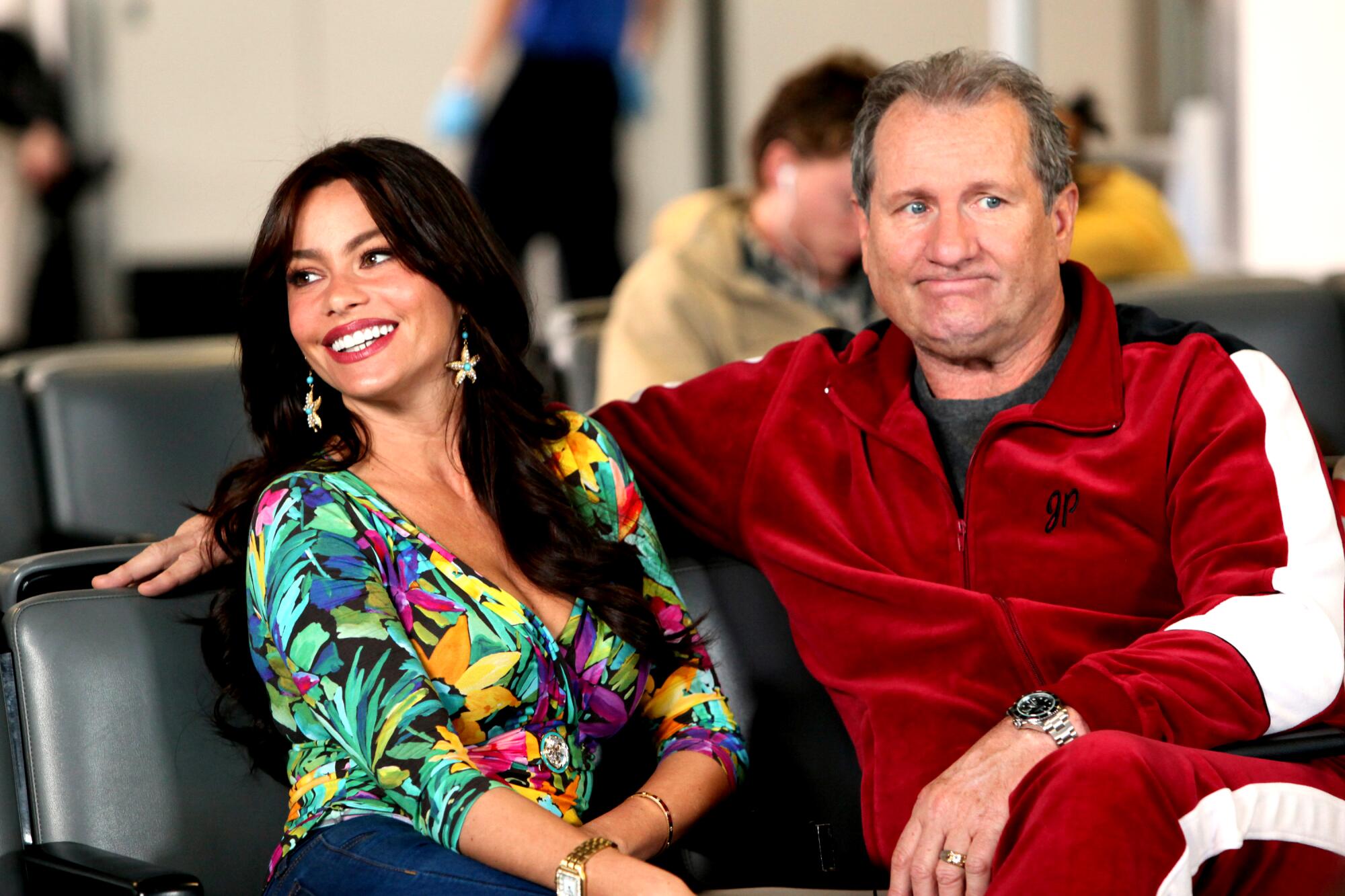
In the midst of it all, Blanco was the character she was reaching for. She read about Blanco obsessively, figuring all the knowledge would serve her well eventually: “I read every single book, every single article, every new note on the internet that came out. For many years, I read and read and read.”
It’s easy to understand the intrigue. Known by a number of monikers that evoke mythic status, including La Madrina ( Godmother) and La Viuda Negra (Black Widow), Blanco fled Colombia and rose to the top of the cocaine industry in Miami during the late 1970s, becoming a drug queen among kings. Smuggling tons of cocaine to Miami from Colombia, the mother of four built a vast drug empire and solidified a vicious reputation as someone who was believed to be the mastermind behind countless homicides during the so-called Cocaine Cowboy Wars in Miami in the ’70s and ’80s.
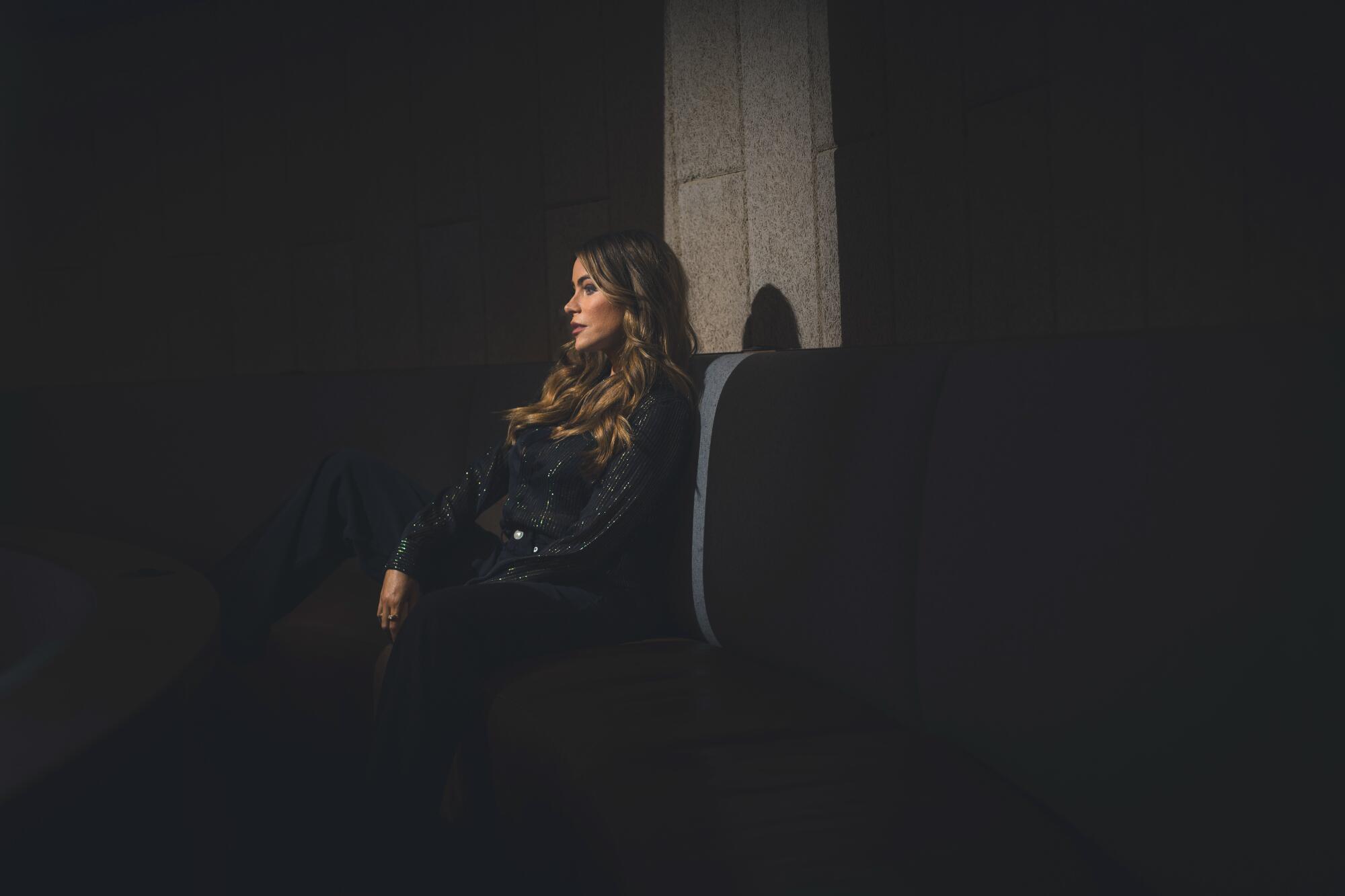
In 1985, she was arrested, found guilty of drug trafficking and sentenced to 15 years in federal prison; and later, in 1994, she was indicted on three murder charges — including that of 3-year-old Johnny Castro, who was fatally shot and killed while riding in a car with his father, who was the target. She spent almost two decades in federal prison before she was deported to Colombia in 2004. As if written for a Hollywood ending, she was shot dead in her hometown of Medellín in September 2012, at age 69, by an assassin on a motorcycle — a style of execution that is often credited as her trademark — outside a butcher shop.
Now, after some delay due to the longevity of her hit sitcom, the role Vergara has been eyeing for much of her career has made it to the screen. In “Griselda,” a six-part limited series premiering Thursday on Netflix, Vergara plays Blanco, and the story begins with her fleeing Colombia to Miami with her three sons. She arrives penniless, but tucked in one of their suitcases is a kilo of cocaine — it’s a chance to start over. From there, it follows Blanco’s precipitous rise and fall as one of the most notorious drug lords ever.
To create the series, Vergara teamed with producer and writer Eric Newman and director Andrés Baiz, both veterans of Netflix’s cartel dramas “Narcos” and “Narcos: Mexico.”
“Griselda” is the first test of Vergara’s ability to stretch her acting muscles beyond comedy.
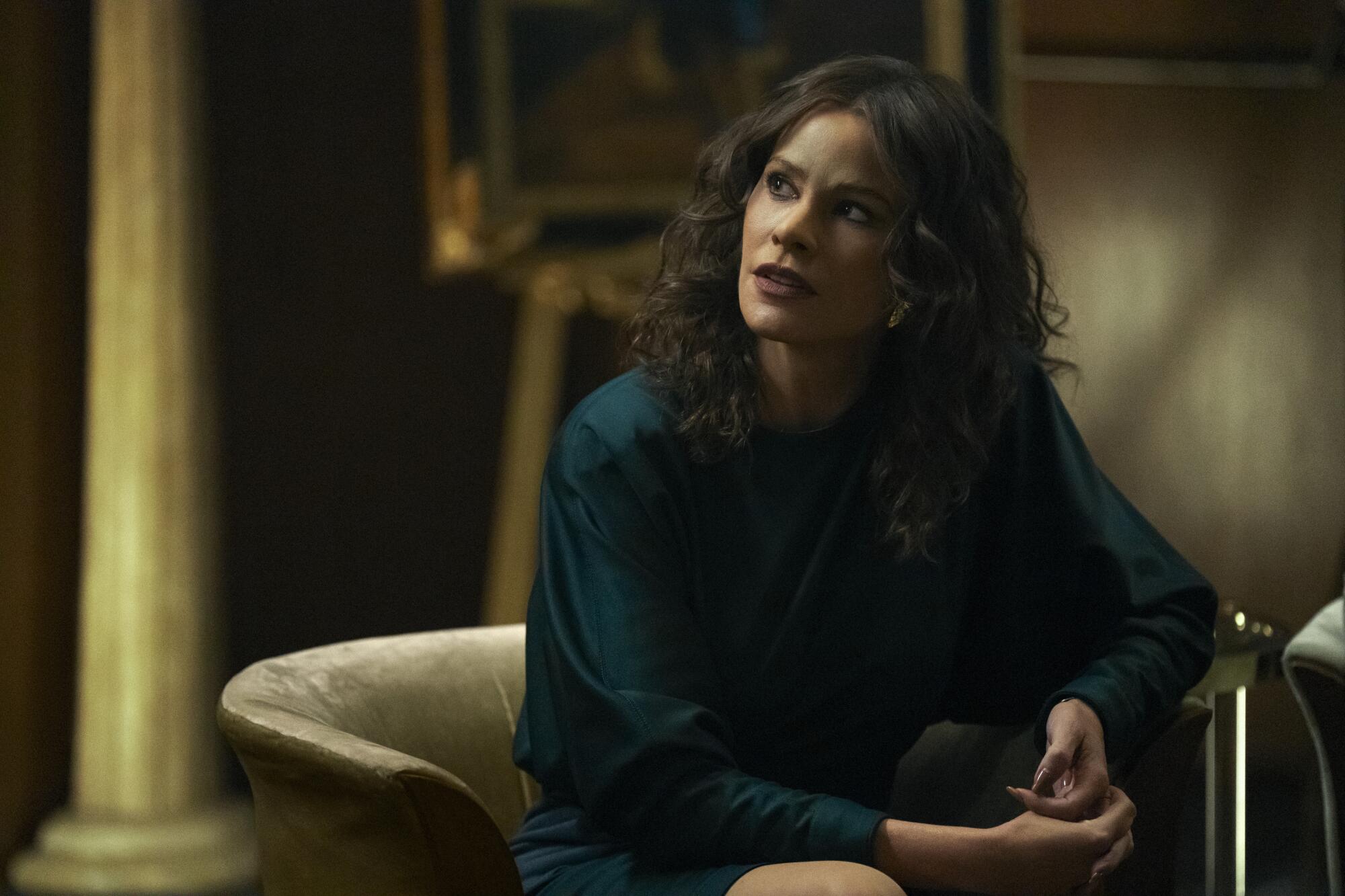
Sitting on a couch inside a small holding room at Netflix’s offices in Los Angeles, Vergara — who is also a producer on the series — brings an incontrovertible charm when she’s in conversation, more warm and upbeat than the character she’s just brought to life onscreen.
“Do you want to eat some garbage?” she asks as she examines the nearby assortment of snacks and makes her selection (an unimpressive protein bar). Later, she can’t help but laugh as she recounts the learning curve of snorting fake cocaine in a convincing manner.
“They give you like some kind of milk powder that dissolves. And, of course, the first time you panic.” And, no, she says she’s never tried cocaine herself: “I had a lot of addiction around me, so I never wanted to do it.”
“Griselda” materialized at a point of transition in her career — as “Modern Family” ended its run — and, now, it arrives at another point of transition — this time, in her personal life: Vergara split from her husband, actor Joe Manganiello, last summer after seven years of marriage. She fidgets as she reflects on it.
“I had not realized that, and now you’re making me f— think about it,” she says, laughing. “I was with this person for nine years. I’m trying to adapt again. I’m 51, so it’s not easy, but it’s been good. And to have people see me in another role because everybody recognizes me as Gloria and nothing else because I haven’t really done anything but comedy — it is like a new chapter for me in every way. “
Figuring out how to prepare for the role and find her way into Blanco, Vergara says, was the most daunting hurdle. In addition to “Modern Family,” Vergara‘s catalog includes 2015’s “Hot Pursuit,” opposite Reese Witherspoon, and 2011’s “Chef.” She also serves as one of the judges on “America’s Got Talent.”
“I had no clue what it meant to have a process,” she says. “It was tricky because I don’t have any real training as an actor. I was married to Joe, who is a f— classically trained actor. I would ask things and I would see how he would prepare. I was kind of always like, ‘What do real actors do? Can I do this?’”
To create a process for herself ahead of filming, Vergara met with Baiz a couple of times a week, and she enlisted acting coach Nancy Banks, whose star clientele includes Margot Robbie and Jennifer Aniston, to find new depth in discerning her character‘s motives through intense script analysis. For the first time, Vergara was exploring questions like: What does the character need from the other character? What does my character dream about? What makes her laugh?
It provided an opportunity for Vergara to draw from her own life. Born in Barranquilla, Colombia, she and her siblings were raised in a middle-class home by her father, a cattle rancher, and her mother, a homemaker. She grew up during the height of the country’s narcoterrorism era and is all too familiar with the crime and violence linked to it. Her older brother, Rafael, was was killed in Colombia in 1998 during an attempted kidnapping.
“The night before I was going to start shooting, I was sitting down in the living room and I thought: ‘Why the f— did I think I could do this?’” she says. “‘Just because I put on a rubber nose, they’re not going to know that Gloria Pritchett is talking?’ They’re going to say, ‘Who does she think she is?’

Her son, 32-year-old Manolo Gonzalez Vergara, however, encouraged her to keep going. “Manolo said to me: ‘You can do this. You have it in you.’”
“I guess he was right because when I was in those scenes, it was like anger and a lot of things about my upbringing and where I come from and who I am,” she says. “I knew those people. My brother was in that business. I knew those feelings. And I understand [Blanco] because all those people that have done really bad things, they’re not all the time bad. They think they’re doing the right thing for people. It’s absurd, yeah, because they’re doing horrible things, but I knew the mentality.”
Vergara is aware that she may be ridiculed for saying she understands Blanco’s story. She’s careful when she talks about the parallels to Blanco and her own journey as a single mother in a new country, trying to set up a new life. In 1994, at age 22, Vergara moved to Miami with Manolo after landing a gig hosting travel and game shows for Univision. It was a move that eventually led her to “Modern Family” and success. Vergara built her empire: She had a fashion line at Kmart (the deal ended in 2015), and she’s signed endorsement deals with the likes of CoverGirl, Pepsi and Head & Shoulders.
“I’m not a killer, but I am a mother; I am Colombian,” Vergara says. “I think that at the beginning, she had the right intention of surviving and being strong and being a mother. But she had something bad inside her because she went harder than any narc guy. She was ruthless. She was a very complicated character.”
She clung to the idea of Blanco and her attempts to balance a family and a business, something she understands intimately. But whatever Blanco’s intentions or motivations, she paid a heavy price to give others more and to feed her ego.
“I always wondered, ‘How do you run that business?’ I guess the same way you run any business,” Vergara says. “You neglect many things about your family and taking care of your kids because it’s about the rise and rise and rise.”
Vergara says everybody knows the stories of narcos and crime bosses, real or fictional — the Tony Montanas, the Tony Sopranos. But rarely have we seen it from a woman’s point of view.
“We have different lives. We have our periods, we care more, we want to protect more, we want to give more,” she says. “The woman’s personality is a lot more complicated. This woman has to survive, and it’s that era where everybody’s doing that [drug dealing]. She doesn’t know what else to do.”
She’s also aware that Hollywood’s obsession with stories centered on the lives of drug traffickers and cartels — rife with violence and lawlessness — dominates how Latinos appear onscreen and can shape negative perceptions, but she also sees value in telling these stories.
“I don’t feel like these kinds of shows make Colombia look bad,” she says. “We are people that are resilient, survivors, hard-working. It didn’t kill our spirit.”
Understanding who Blanco was is one thing. Then there is the matter of looking like the Colombian drug lord. Tap Blanco’s name into an internet image search and the results are populated with a 1997 police mugshot: she’s in her mid-50s, with her gray hair pulled back, accentuating a round face stretched by pudgy cheeks and a cleft chin. But Vergara portrays Blanco years before the hard life caught up to her.
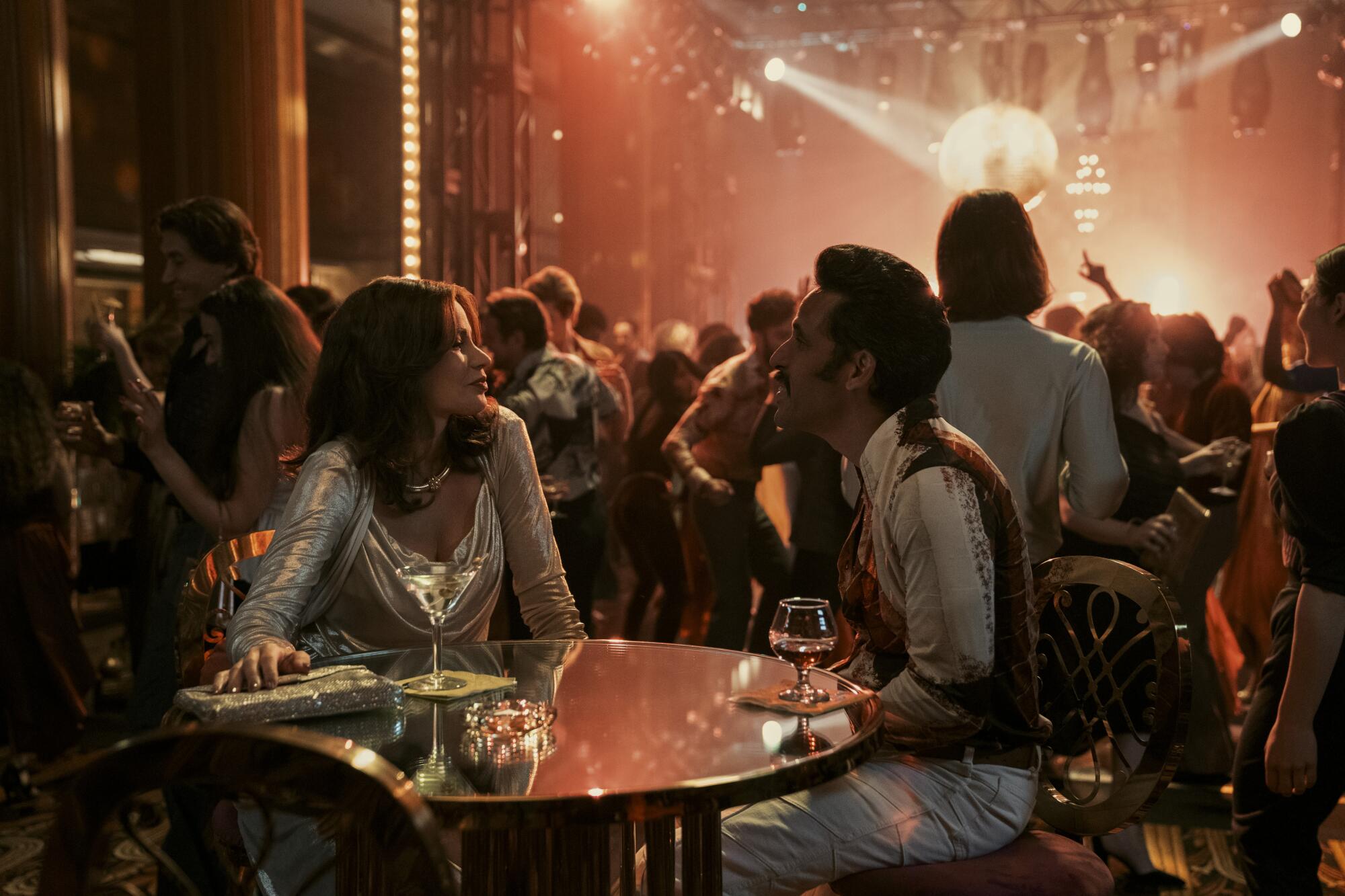
To evoke Blanco, Vergara spent three hours in hair and makeup daily, being outfitted with a prosthetic nose and prosthetic teeth to help the performer transform into her character. At one point, Baiz intervened, nixing the fake bottom teeth after sensing that they were getting in Vergara’s way. (“I said, ‘Give them to me right now, put them in my hand.’ And I threw them in the garbage,” Baiz recalls. “She could relax. She wasn’t thinking about her diction anymore.”)
“Taking off the makeup at night after 16-,17-hour days, took about an hour,” she says. “Once you take those prosthetics out, it’s not like you look great. Your hair is f— horrific. Your face is all red and inflamed from removing all that. That was my life for six months.”
And it wasn’t just her face. She had to modify other parts of her body as well.
“I put on the worst bra to make my boobs saggy with no support, no boning,” she says. “I put on two Spanx to make my ass flatter and [less] bouncy, because when I walk, my ass bounces. I have an aunt that doesn’t have much ass. So I walked like her. I put my body like her.”
Changing her gait nearly threatened the whole production. It all came to a head the third month of shooting.
“I got out of bed and my back locked,” she says. “They had to cancel filming, and they had to inject me with cortisone. I go to the doctor and he’s like, “What the f— have you been doing? I’m like: ‘I’ve been walking for three months, for 16 hours a day, in this bad position. I’m thinking it’s not going to do anything to me.’ And he said, ‘Listen, you’re 50 years old. When you do those kind of roles’ — but there you go, that’s why I’m not a real actress — ‘you have to get a masseuse every week or a chiropractor or stretch.’ I think I ruined my back forever. Every once and a while, they have to inject me there. It was torture.”
Anticipating comparisons or criticisms about her physical appearance, Vergara explains what she turned her focus toward.
“I couldn’t become [Griselda] exactly. But I wanted to disappear. I wanted Gloria Pritchett to disappear. That was achievable — I mean, we’ll see. The show hasn’t come out yet, but I think it worked because I didn’t try to become her. I tried to become a woman of that era.”
Baiz says one of the appeals of directing the series was to be part of Vergara’s transformation and metaphorically take her hand and guide her to becoming Blanco.
“When we said ‘action’ the first time, I saw Gloria — it was her first instinct,” says Baiz, who adds that all his directions to Vergara were given in Spanish. “We did some pretty dramatic scenes those first few weeks, and yes, I was feeling nervous. It was a process. And I can remember the day where I was like: ‘Oh, she’s got it.’” It’s a scene featured in the pilot episode, where Vergara’s Blanco is thanking her friend Carmen (Vanessa Ferlito) for taking her and her three sons in.
“What’s funny, though,” Baiz adds, “is when I see those scenes of the first days, they’re much better than I thought they were when I was directing them. I guess it was also a bit of my own discovery. The thing that impresses me is that she came into this project knowing she was going out of her comfort zone, knowing this was going to challenge her. I think people are going to be surprised by what she did in ‘Griselda.’”
Steve Levitan, the co-showrunner of “Modern Family,” is eager for people to give Vergara more credit for her work.
“Sofía is very strong, very savvy, and she is pretty unflappable,” he says. “She is not some lightweight person pretending to be a tough character. She has lived through some stuff. I’ve just seen her stand up to pressure that would make other people shrink. To me, it seems like a really nice fit: portraying a strong woman in a man’s world. That’s Sofía. Underestimate her at your own peril.”
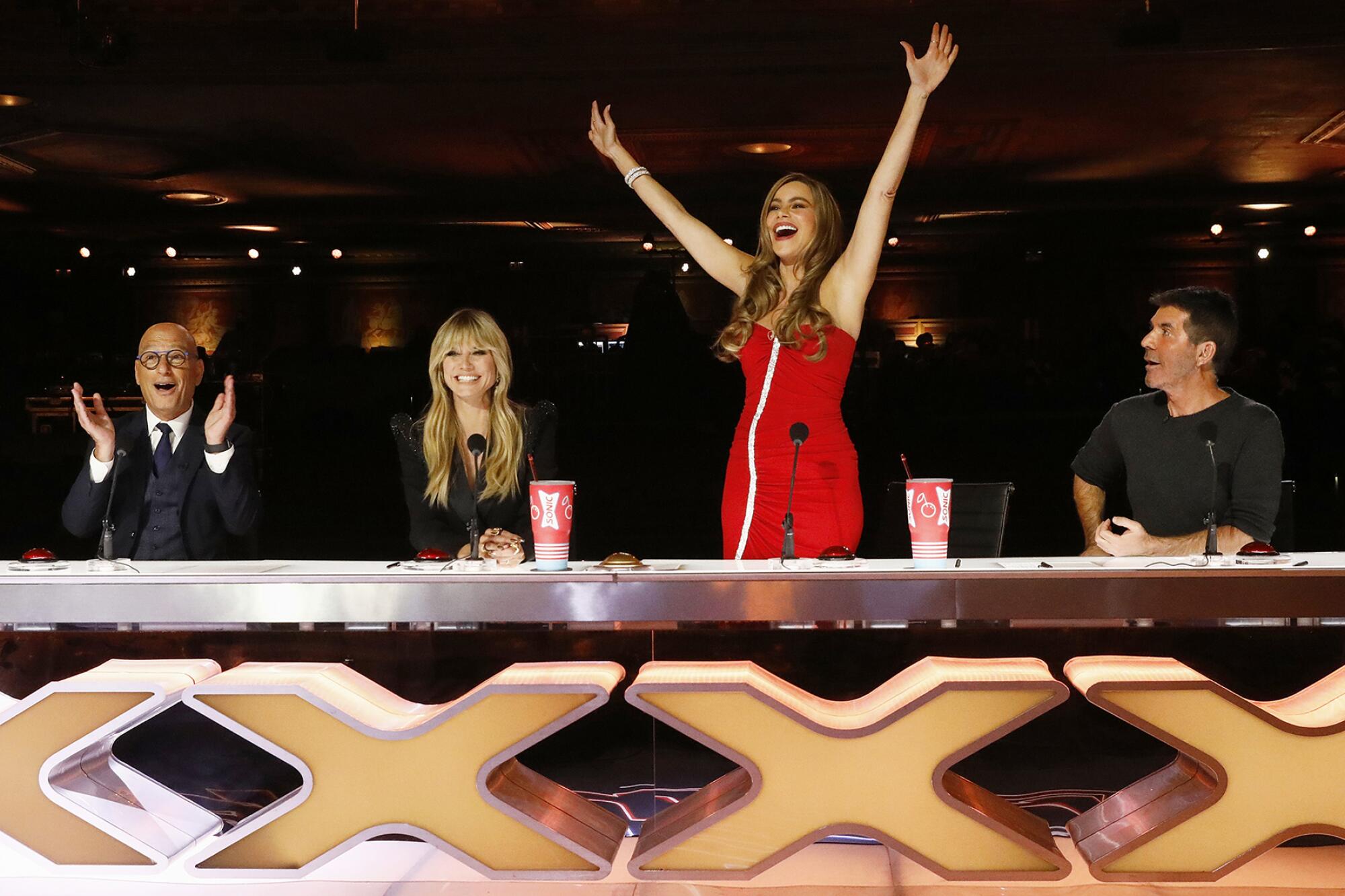
Newman says Vergara’s comedic timing was what actually had him convinced she could pull it off. That, and her ability to stand firm when it affects her work. “Watching her dealing with her empire, I thought, ‘This is someone who runs a real operation, who built it from nothing, and understands what’s at stake when you deviate from what you’re known for.’ Her courage to say, ‘I’m going to go do something completely different’ — that’s conviction.”
He tells a story of how, early in the process, there was a scheduling issue that had her committed to filming of “Griselda” while also on the hook for “America’s Got Talent” and other obligations.
“At one point, she summoned me and she was pissed off,” he says. “Obviously, I had a fair amount of contrition for putting her in the situation, a little bit of fear. But the overwhelming thing was: ‘That’s Griselda. Like, do that.’ When she needs you to love her, you love her. When she needs you to trust her, you trust her. When she needs you to be afraid of her as a performer, she summoned it all perfectly.”
There have been other portrayals of Blanco’s story. The year she was killed, Blanco was played by Luces Velásquez in the Colombian telenovela “Pablo Escobar, el patrón del mal.” In 2017, Catherine Zeta-Jones took on the role in a Lifetime movie, “The Cocaine Godmother.” And Jennifer Lopez, at one point, was tapped for a Hollywood biopic. Newman said there had also been some thought about finding a way to tell Blanco‘s story within the “Narcos” universe, but they couldn’t find a place in the series to do it justice.
“She’s this sort of spectacular character, and unlike what other shows and stories might have you think, there’s never been a woman that’s risen to that level, was that feared, respected in some circles, and certainly reviled in others,” he says.
It’s a wonder, then, why a six-episode limited series was the route taken over one with multi-season potential.
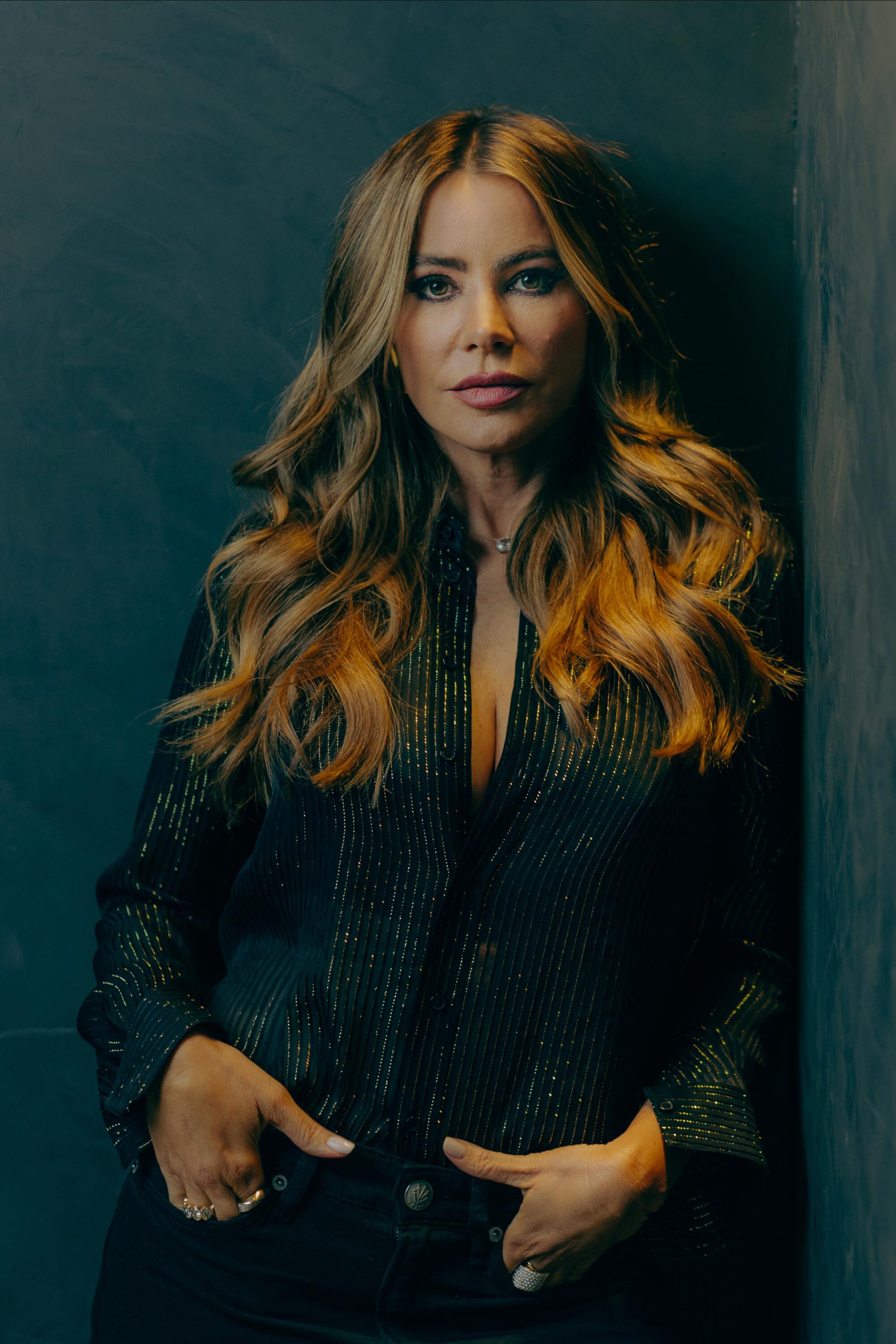
“I don’t like doing things that I don’t know if I’m going to be able to do them,” Vergara says. “ I didn’t want to commit to something that was going to be too difficult for me to do. Because, at the end of the day, I’m in my 50s. I’m at the point in my life where I don’t want to torture myself.”
After reaching the grail quest that haunted her for years, Vergara is ready to take on the next Hollywood challenge with more confidence. But she’s not naive to the barriers she faces as a Latina actor with a distinctive accent, noting such counterparts as Salma Hayek and Penélope Cruz.
“Eva Longoria doesn’t have an accent. Jennifer Lopez doesn’t have an accent. Jessica Alba doesn’t have an accent. Is it frustrating? Of course. In the beginning, more than now,” she says. “And the frustration was towards me. How come I can’t f— get this right? I’ve been here for 30 years. How dumb can I be? I have to fight in English, f— in English, act in English. It’s exhausting.”
(Weeks after this interview, while Vergara was promoting the Netflix series abroad, a television host in Spain interrupted her to ask her about her pronunciation of “Modern Family,” seemingly criticizing her. “Does it not sound right?” Vergara replied before adding, “Because you speak better English than me? How many Emmy nominations do you have in the United States?”)
If she had her way, Vergara would like to keep producing projects — she’s in talks with Netflix and Newman on another TV show — and she’d like to land a role in a big-budget movie with a big cast.
“I want to be in something like ‘Mission: Impossible’ or ‘Dune’ or an ‘Ocean’s Eleven.’ Something big and international. I don’t need to be the main character.”
Another promising idea.
More to Read
The complete guide to home viewing
Get Screen Gab for everything about the TV shows and streaming movies everyone’s talking about.
You may occasionally receive promotional content from the Los Angeles Times.






